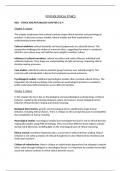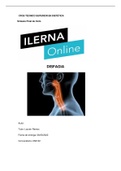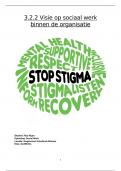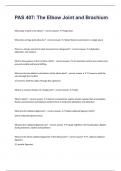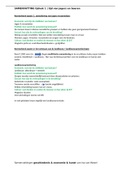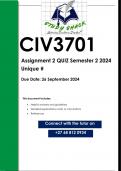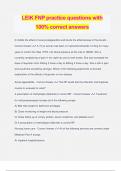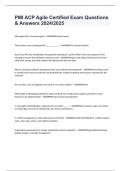Resume
Psychological Ethics summary - literature and lectures
- Cours
- Établissement
This document contains a summary of all the lectures and literature needed for the exam. It does NOT include the guest lecture since that will not be a part of the exam. It uses a lot of bulletpoints and examples to make the information clear. I hope this helps you study for the exam!
[Montrer plus]
